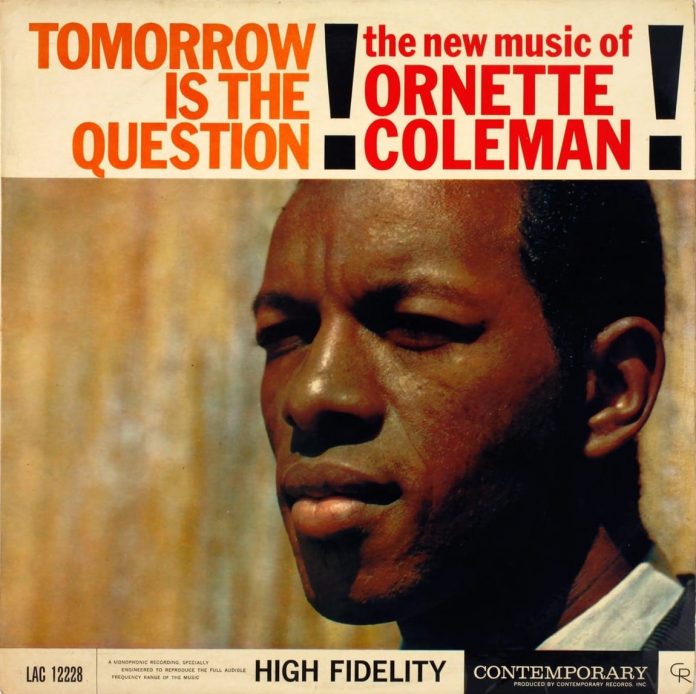The music of Ornette Coleman has produced some of the most violent reactions, both for and against, seen on the jazz scene in some years. His music, whilst claiming unique freedom, has, in fact, unique limitations. It is as good as the imaginations of the musicians playing it.
Whether it is inherent in Coleman or in the music itself, there is an almost total absence of melody in his playing, which at times borders on incoherence. A particularly bad example of this is his solo on “Rejoicing”, where the tempo is too much for him, and his playing descends into a succession of brief, meaningless phrases. At other times, especially on “Giggin'”, his playing has almost as much melody as Cannonball Adderley’s.
Don Cherry is not a particularly inspired or inspiring musician, and his phrasing is often clumsy, and poorly executed, especially on double-tempo passages. The best playing on the record is on the two blues, “Tears Inside” and “Turnaround”. On the former, Coleman plays in a comparatively “conventional” manner with, again, a reasonably melodic line.
One fact which seems to have escaped most of the violently pro-Coleman critics is the man’s age – 30. A very large proportion of the great innovators in jazz reached maturity comparatively early in their musical life (mostly in their early or middle twenties), and whilst this is not a hard-and-fast rule, the majority of the better second-rank men (Buck Clayton is a good example) matured later. Ornette Coleman is undoubtedly pointing a new direction which jazz might take, but he does not appear to be a great enough musician to lead the way.
Vogue are to be congratulated on their courage in issuing this record, but prospective purchasers would be well advised to listen carefully first.
Discography
(a) Tomorrow Is The Question; Tears Inside; Mind And Time; Compassion; Giggin’; Rejoicing (23 min.) – (b) Lorraine; (c) Turnaround; (c) Endless (19 min.)
(a) Don Cherry (tpt); Ornette Coleman (alto); Percy Heath (bs); Shelly Manne (d). Los Angeles, 9 and 10 March, 1959. (b) Red Mitchell replaces Percy Heath. Los Angeles, 16 January, 1959. (c) as for (b). Los Angeles, 23 February, 1959.
(Vogue LAC 12228. 12inLP. 36s. 5½d.)
















